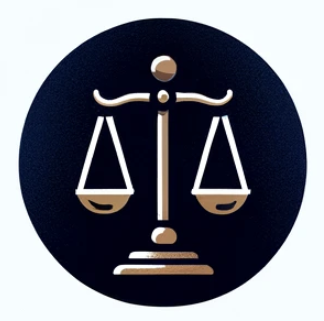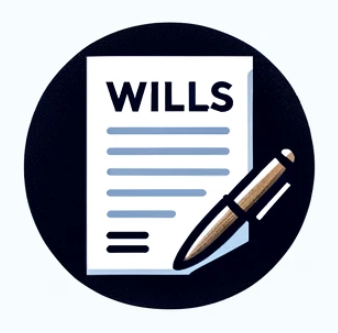
We Are Ottawa Family Lawyers
Dedicated To Guiding Self-Represented Individuals and The Clients We Represent Through The Legal System And Separation Process

Family Law
Legal Coaching & Limited Scope
Legal Coaching for Behind-The-Scenes Advice
Review and Draft Documents
Help Prepare You For Court Appearances
Provide Information On Court Rules & Proceedings
Offer Legal Advice With Respect To Your Specific Situation

Family Law
Representation
Divorce Application Preparation
Cohabitation and Separation Agreements
Court Applications And Assistance With Responding To Court Proceedings
Defense of Child Protection (CAS) Applications
Representation in Mediations, Negotiations, and In Court
Advice Concerning Adoption

Other Services
Wills and Powers of Attorney
Notarizations and Commissioning of Important documents
Travel Consents
Opinion Letters for Marriage Applications
Statutory Declarations
Affordable Rates & Packages
Court Coach LLP is different from other firms. We offer affordable retainers that can be tailored to your specific needs & circumstances.
We offer limited scope retainers, unbundled legal services, and legal coaching retainers for family law clients
We also offer full service retainers for those looking for a reliable lawyer to put their best case forward.
We started Court Coach LLP with the desire to help people navigate the family law court system.
Meagan Le Page
Meagan Le Page is a founding partner at Court Coach LLP and has been practicing family law since 2011. Her practice is focused on family law work, from drafting client agreements to appearing for clients in court.
Meagan believes it is important for clients to have a representative they can trust to be reliable, and honest. She strives to ensure her clients are well-informed and supported so they feel equipped to make the decisions affecting their case.
While she prides herself on her ability to come up with creative, cost-effective solutions to resolving family law issues, she is an experienced and confident litigator when you need representation in court or in a dispute resolution process like mediation.


Stephanie Smith
Stephanie Smith is a founding partner at Court Coach LLP and was called to the bar in 2010. Specializing in family law, child protection, and the delicate art of drafting Wills and Powers of Attorney, Stephanie is dedicated to ensuring her clients receive comprehensive and effective representation, with a focus on the intricacies of family dynamics and importance of future planning. As an active member of the legal community, Stephanie stays up to date on evolving legal trends, ensuring her clients receive informed and strategic counsel.
As a seasoned courtroom advocate, Stephanie is well-versed in the complexities of family law and child protection proceedings. Her extensive experience allows her to navigate the legal landscape with confidence. Stephanie understands the emotional challenges that often accompany legal proceedings. Her approachable demeanor and ability to communicate complex legal concepts in a clear and concise manner make her a trusted advisor and advocate.
Beyond her ability in the courtroom, Stephanie is a proponent of alternative dispute resolution. Recognizing that not every matter needs to be resolved through litigation, she encourages mediation and collaborative approaches to find amicable solutions. Her commitment to offering diverse strategies underscores her belief in achieving results that prioritize the well-being of her clients and their families, minimizing stress and preserving relationships.
Giulianna Ferri
Giulianna Ferri joined Court Coach LLP as an associate lawyer in 2018. She graduated from the University of Ottawa with a Juris Doctorate in 2014, and has been practicing family law since her call to the Ontario bar in 2015.
Giulianna’s practice is focused primarily on family law and child protection matters. Giulianna is experienced in guiding clients through all issues surrounding separation and divorce, including but not limited to disputes about parenting time, decision-making responsibility, child support, spousal support, and division of property.
Her approach emphasizes out-of-court resolutions whenever possible, fostering agreements through negotiation and mediation to minimize the emotional toll on all parties involved.
However, recognizing the nuances of legal disputes, Giulianna is also adept at navigating litigation when necessary. Giulianna has conducted conferences, motions and trials in the Ontario Superior Court of Justice. Giulianna’s extensive courtroom experience and meticulous preparation ensure that her clients receive strong representation and advocacy when needed.
In addition to her expertise in family law, Giulianna offers services in drafting wills and powers of attorney.

The first step with a new client is to schedule a consultation. We offer video consults, phone consults, and in-person meetings.
We do not offer free initial consultations because our consultations provide real value to our clients. A consultation at Court Coach LLP is not merely a “meet and greet.” Our consultations are practical, thorough, and substantive. We take the time to understand your case, assess the situation from a legal standpoint based on the details you have provided, answer your various questions, provide you with realistic options in achieving your goals and help you strategize your next steps. You get the true benefit of our knowledge and a plan forward, regardless of whether you intend to retain our firm thereafter.
COURT COACH LLP
125 Somerset Street West
Unit 203
Ottawa, Ontario K2P 0H7
*Please note that by sending an email to Court Coach LLP you acknowledge that you are not a client of our firm, unless you have signed a retainer agreement with our lawyers to be a client of our firm. Please do not send confidential documents or information to our lawyers until you are a client of the firm.

